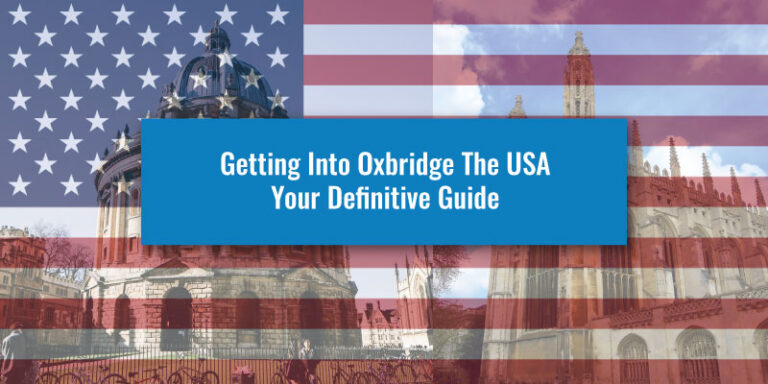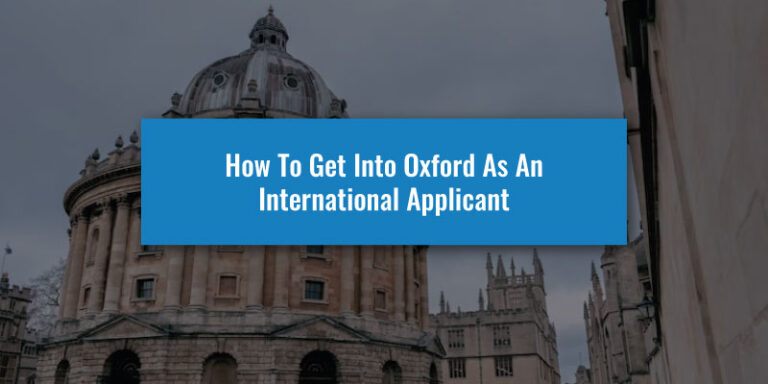UK Tuition Fees have changed for EU, EEA, and Swiss Nationals.
When the UK voted to leave the European Union in 2016, it was clear that significant changes would be seen in upcoming years – especially in education. In June 2020, the Minister of State for Universities published a statement briefly detailing what these changes were.
We’ll give you a full breakdown below and explain which tuition fees relate to you.
UK tuition fee changes for EU, EEA, and Swiss nationals
Instead of being considered a Home Student, you’ll now be categorised under Overseas or as an International Student. This means a few different things:
Will EU Students Pay International Fees?
- Yes you will need to pay Overseas/International Fees. Since you’ll no longer be considered a home student, tuition fees will become significantly higher. For top universities like Oxbridge, these increases may represent another barrier to overcome so it’s important you’re aware of the fee differences.
-
You will no longer be able to apply for Student Finance. The Student Loans Company provides tuition support for over 1 million students every year and it’s pretty much the standard when it comes to paying for tuitions in the UK.
Unfortunately, this will no longer be available to EU, EEA and Swiss nationals. We are not aware of any other arrangement by the UK government, so it’s important that you consider how you’re going to pay for your fees prior to applying. Some universities will have financial support for international students so it is worth seeing what your options are.
Oxford and Cambridge International Fees
For a course at Oxford, tuition fees will now vary between £27,840 and £48,600.
For Cambridge, the situation is very similar and tuition fees for international students will vary per course. For courses in Group 1 like Law (their lowest bracket), the university will charge £23,340, and for courses such as Medical and Veterinary Science in Group 4 (their highest bracket), you will now need to pay £60,942.
The tables below show examples of these changes in some of the courses at Oxbridge.
| Cambridge (Undergraduate) | Annual Course Fees in £ | |
|---|---|---|
| Courses: | Before 31st July 2021 | After 1st August 2021 |
| Medicine | 9,250 | 60,942 |
| Law | 23,340 | |
| Computer Science | 35,517 | |
| Mathematics | 26,031 | |
| Oxford (Undergraduate) | Annual Course Fees in £ | |
|---|---|---|
| Courses: | Before 31st July 2021 | After 1st August 2021 |
| Medicine | 9,250 | 48,600 |
| Law | 29,500 | |
| PPE | 29,500 | |
| Economics & Management | 32,480 | |
Other universities will have different fees so it’s important that you check the website of the university you’re applying to, to get the most accurate information.
Applying to the UK as an international student is incredibly competitive. Ensure your Oxbridge and Medicine application is as strong as it can be.
Every year, we support international students to receive their Oxbridge offers by ensuring they craft the perfect Personal Statement, achieve a highly competitive Admissions Test score and Interview effectively – covering all areas of their Oxbridge application, from History to Medicine. Now it’s time to get you your offer.
Discover our Oxbridge Premium Programmes by clicking the button below to enrol and triple your chances of success.
When are The UK tuition fee changes happening?
In order to ensure a smooth transition, the UK has agreed on a specific date for the tuition fee changes to come into effect. The government created an extensive document detailing these changes, but we’ll include a summary below.
Students starting on or before 31st July 2021:
- Will still have access to student finance for the duration of their course. This means that if you’re starting a 3-year course on the 31st July 2021, you will be able to get tuition support from the Student Loan Company for entire duration of the course.
- Will pay the same tuition fees as Home Students. These might increase on a yearly basis due to inflation but will always be covered by the Student Loan Company.
- Will need to apply for a visa if their course is longer than 6-months.
Students starting on or after 1st August 2021:
- Will be fully responsible for the payment of their tuition fees.
- Will pay Overseas/International fees. These can vary quite drastically depending on the university you choose to attend so it’s important that you check these details before applying.
- Will need to apply for a visa if their course is longer than 6-months.
Are there exceptions to UK tuition fee changes?
Yes, there are. If you are an EU, EEA or Swiss National with pre-settled or settled status in the UK, the above changes do not apply to you. In simpler terms, if you were living in the UK prior to 31st December 2020 and have applied for pre-settled or settled status, you will still be categorised under Home Student.
Why are fees changing?
With the UK leaving the European Union, the nation had to take a closer look at every single process conducted in accordance to the European Union laws and agreements. For the education sector, the UK decided that current arrangements were not beneficial for the country hence the tuition fee changes.
In order to understand why these changes were made, we’ll go into more detail and explain why fees are higher for international students in the first place.
There are two main factors to consider: the costs of delivering a course in the UK and who pays for Home Student’s fees. Universities in the UK are told by the government how much they can charge domestic students (currently this amount sits at £9250). This is valid for all universities. The issue with this rule – which benefits students the most – is that delivering a course does not cost £9250.
As such, universities are losing money with domestic students and use international fees to make up the difference in a process described as cross-subsidisation. Moreover, it wouldn’t be possible for the Student Loan Company to subsidise every student that wishes to study in the UK. This would simply not be economically viable.
As such, the rationale behind it is very simple: prioritise the education of Home Students since they are more likely to stay in the country and help the economy.
Worried about the competitiveness of applying to the UK? We’ll make sure you have an edge over other applicants.
Every year, we support international students to receive their Oxbridge offers by ensuring they craft the perfect Personal Statement, achieve a highly competitive Admissions Test score and Interview effectively – covering all areas of their Oxbridge application, from History to Medicine. Now it’s time to get you your offer.
Discover our Oxbridge Premium Programmes by clicking the button below to enrol and triple your chances of success.








